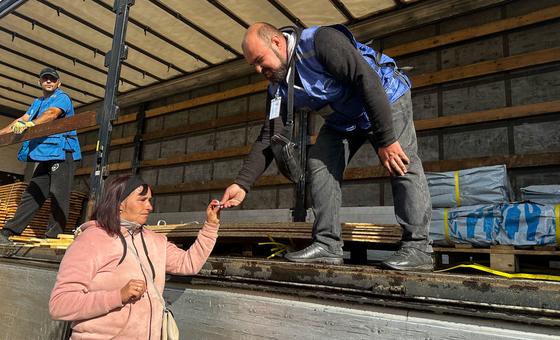Russia has bombarded more than 100 Ukrainian towns across nearly half of its regions in the past two days according to the Ukrainian Government, many near the frontlines.
UN Spokesperson Stéphane Dujarric strongly condemned “the latest wave of attacks against critical infrastructure in various parts of the country, which reportedly resulted in injuries among the civilian population, including children, and caused damage to civilian residential and commercial buildings.”
He told reporters in New York on Friday that the UN was concerned about escalation and the threat it posed to civilians across the country, as the harsh winter weather approaches.
Attacks prohibited
“We reiterate in the clearest terms that attacks against civilians and civilian infrastructure are prohibited under international humanitarian law and they must stop immediately.”
UN humanitarians have reported that the attacks destroyed energy facilities, schools, hospitals and other public buildings. The Kherson region in the south and the Donetsk region in the east were particularly affected.
Kharkiv City also came under attack on Thursday night. Partner NGOs based in the city provided psychological support and shelter materials to people whose homes were damaged, said Mr. Dujarric.
Aid to frontline civilians
“We and our partners continue to provide critical aid to frontline communities. Today, an inter-agency humanitarian convoy delivered vital aid to about 1,600 people who remain on the front-line town of Orikhiv in the Zaporizhzhia Region”, he added.
This year alone, the UN and partners have delivered 14 convoys to front-line communities in the Zaporizhzhia region, providing essential support to more than 30,000 people living near the southern front.
There have been 96 humanitarian convoys to frontline areas since the beginning of the year, said the UN Spokesperson.
Ahead of winter, humanitarian workers are distributing vital items, such as thermal blankets, mattresses and portable heaters. The UN and partners are appealing for some $435 million to deliver winter assistance to more than 1.7 million people across Ukraine through March next year.

